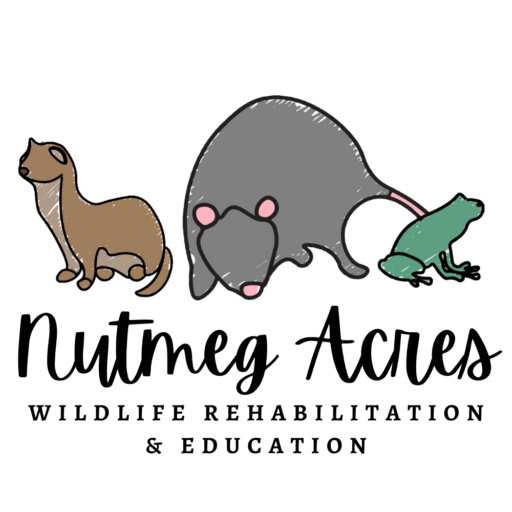Get In Touch
Contact us Anytime!
DO NOT EMAIL ABOUT ANIMALS IN DISTRESS OR EMERGENCY SITUATIONS.
Please call or text 860.631.7252
**Do not ever simply show up with an animal or leave an animal at our doorstep**
Looking for another wildlife rehabilitator in CT?
Please utilize the DEEP Directory
If you are outside of CT, please utilize Animal Help Now
For general inquires, questions or comments please fill out the form below.
Frequently Asked Questions
What is a wildlife rehabilitator?
Wildlife rehabilitation is the care of injured and orphaned wildlife by providing medical care, food and housing while taking precautions to minimize the animals’ stress and maintain animals in their natural wild state so that they can appropriately be released back to the wild once they are able to survive on their own.
What animals do you accept?
We accept all species of reptiles and amphibians and all wild mammals except raccoons, skunks, foxes and fawns. No one in Connecticut is permitted to care for bobcats, black bear or coyote.We do not accept domestic or farm animals such as dogs, cats, pet turtles, pet birds, chickens, etc…
Why isn’t anyone answering the phone?
Because of limited resources, we do not have dedicated phone staff. As a result, if we are working on an animal or handling another call, we may not be able to answer your call. We will return your call by phone or text as soon as we are able to.
Can I visit the animal?
No. CT DEEP does not allow people to visit any animals that are at Nutmeg Acres Wildlife. Not only is it illegal to show an animal in rehabilitation to the public, but it is also not in the animal’s best interest. An injured animal in rehabilitation is already physically compromised by its injury and it is already stressed by being in a captive rehabilitation setting. Allowing visitors would compound the animal’s stress and could negatively impact its survival. Orphaned baby animals haven’t yet learned to be afraid of people but exposure to people could result in the animal becoming habituated or imprinted to humans, which could prevent the animal from being releasable or able to survive in the wild.
Where will the animal be released?
The general rule is that we release adult animals back to their original territory and we release young animals at release sites with appropriate habitat. Young animals are usually raised and released in groups. Animals that are cat or dog caught will not be returned to their original territory.
Send a Message
Phone, TEXT & Email
OUR Hours
As volunteers, our hours will vary day to day.
Address
19 Victoria Drive Moosup, CT. 06354
